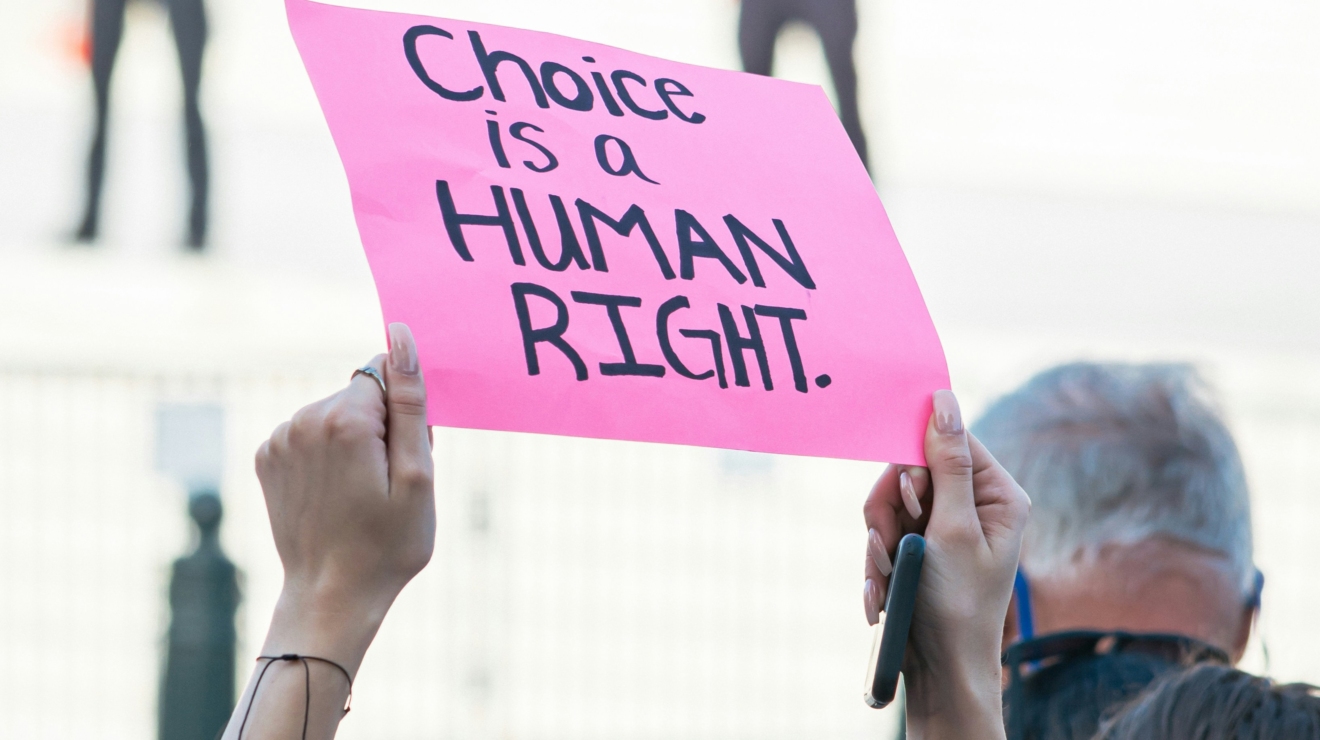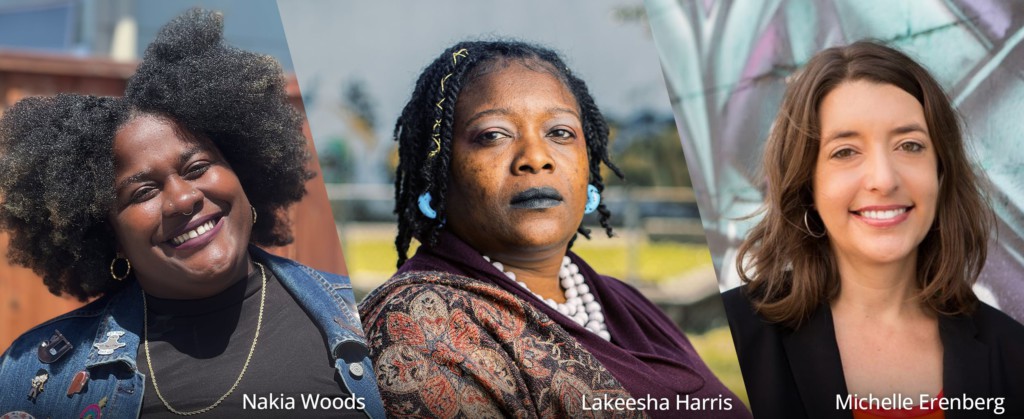
Philanthropy

Although reproductive justice leaders have been sounding the alarm for years about massive federal legislative changes, much of the country was caught by surprise when the Supreme Court overturned the constitutional right to a safe and legal abortion in Dobbs v. Jackson Women’s Health Organization. The ruling should have not been such a shocking surprise. Louisiana has passed 89 restrictive abortion laws since Roe, and there were only three abortion clinics in the entire state before the catastrophic decision.
Many people, particularly BIPOC and those who live in economically disadvantaged communities in Southern states like Louisiana, were already traveling hundreds of miles to receive reproductive health care before Roe was overturned.
Now that we are living in a post-Roe world, it is all the more imperative that we listen to grassroots leaders. That’s why Tides’ Corporate and Strategic Initiatives team hosted a reproductive justice convening earlier this month, to lift up the voices and insights from grassroots movement leaders. The event featured our partners Nakia Woods, director of the California Coalition for Reproductive Freedom, and co-executive directors of Lift Louisiana Lakeesha Harris and Michelle Erenberg.
These inspiring leaders shared what they know about reproductive justice and offered our corporate social impact partners advice about actionable steps they can take to protect reproductive freedom and help people across the United States regain access to this fundamental human right.
Here are four valuable insights we learned from their powerful and informative remarks.
1. Reproductive justice was born out of necessity.
When Woods, Harris, and Erenberg were asked how they started working on the frontlines of reproductive justice, they each shared how their own professional and personal experiences led them to the work. Harris and Erenberg described how their own experiences of being denied access to reproductive care compelled them to work in the field.
“I came to this work because while I was in college at Loyola University in New Orleans, I was denied birth control from the Jesuit insitution’s health center, and it infuriated me,” Erenberg said. “That was the beginning of my personal fight for reproductive rights.” Erenberg shared how her experience also motivated her to later work for Planned Parenthood and with the National Council of Jewish Women, where she was able to build and hone her skills as an activist.
Similarly, Harris discussed how becoming pregnant at a young age opened her eyes to the lack of services and information available to her. “I was a young mom. I got pregnant at 16 and needed services, needed information,” Harris said. “Oftentimes, that’s how Black women, Black people get introduced to reproductive justice: as a necessity and while trying to get services for themselves and their communities. I needed what I needed, so I became what I needed.”
The speakers’ stories about their lived experiences revealed an important truth: reproductive justice was born out of necessity. And that the reproductive rights movement largely has been centered around the experiences of white women and their access to abortion, while marginalizing BIPOC communities, queer, and gender nonconforming people. According to Harris, reproductive justice seeks a world in which we can all parent our children in safe and sustainable communities in which they can thrive. It’s a world where we can choose to be parents or not to be parents. This tenet holds that bodily autonomy has eluded marginalized communities for centuries due to white supremacy, medical racism, and lack of access.
Oftentimes, that’s how Black women, Black people get introduced to reproductive justice: as a necessity and while trying to get services for themselves and their communities. I needed what I needed, so I became what I needed.
Lakeesha Harris, Co-Executive Director, Lift Louisiana
2. Reproductive rights are intersectional.
“Reproductive rights is such a buzzword that folks don’t fully understand what it means,” Woods said. “It is anti-racism, it is anti-capitalism, and it is anti-patriarchy.” Reproductive justice intersects with other movements, and as Erenberg explained, reproductive justice movement leaders like herself recognize that when a person becomes pregnant, that individual is living in a particular environment and oftentimes navigating oppressive systems.
For example, she explained how Lift Louisiana has been working hard to get a bill passed that would allow people to get a six-month supply of birth control because, in New Orleans, people regularly must prepare to evacuate for storms. “We need to have several months of birth control because a community may be displaced, which means it’s going to get difficult for them to get a prescription filled,” Erenberg said.
The impact of COVID, rising rental costs, and the wage gap are all devastating communities, and restricting reproductive rights further exacerbates the issue. “We’re not not just focused on abortion, and we are focused on abortion, and we are not afraid to say abortion. In fact, we are saying it and jeopardizing our own well-being while we are pushing for all this other stuff,” said Harris.
3. Grassroots organizations need long-term support.
“We need your dollars, and we need you to be unafraid,” Woods said.
While large reproductive rights organizations like Planned Parenthood have done transformative work in advancing reproductive rights, they’ve also benefited from much larger budgets, allowing them to build well-known profiles that attract new donors.
Many grassroots reproductive justice organizations, on the other hand, have not received the same attention for their innovative, on-the-ground efforts. Corporate social impact leaders have the opportunity to make a commitment to direct funding and resources to proximate leaders who best understand and serve their communities which are hardest hit when restrictive measures are passed.
For these small, local grassroots organizations, a modest donation can make a major difference given these groups’ small capacities. For example, Woods shared that she is the only staff person for the California Coalition for Reproductive Freedom, even though the group is leading a statewide coalition.
“I think the big takeaway is that we’re resourceful, we’re resilient, and we’re creative, and we’re going to meet this moment,” said Erenberg. “Hopefully, we have your support doing that. We need you to be in it for the long-term, because it is going to be a long fight for us to get where we recognize abortion is a human right to protect.”
4. Supporting sex education is fundamental.

Photo by Gayatri Malhotra on Unsplash
When asked about the most common misconception they face, the leaders resoundingly agreed on the myth that basic sex education is widely available. Many states do not have mandated comprehensive sex education that provides teachings on different sexualities, relationship models, and consent, they said.
“There are certain schools that may have better education surrounding sexual education, but it’s not really comprehensive,” said Harris. “It’s not talking about STI, and we wonder why STI rates have gone up.”
Woods added that she and other grassroots leaders hear policymakers and even health care workers provide misinformation about how bodies work. “There’s so much misinformation that’s going on out there that we constantly have to course correct, even for legislators, doctors, and people on the forefront making a lot of decisions,” said Woods.
Corporate dollars can help fund nonprofit programs aimed at educating people about making the best decisions for themselves. The speakers also called on corporate leaders to support their own staff to receive the abortion and reproductive care they need, especially if they reside in states where those services are now banned.
To learn more about how you can support reproductive justice, we invite you to watch the full discussion, and provide critical resources to grassroots organizations like the California Coalition for Reproductive Freedom and Lift Louisiana that are working on the frontlines of reproductive justice and abortion access.

Read the stories and hear the voices of social change leaders fighting for justice.